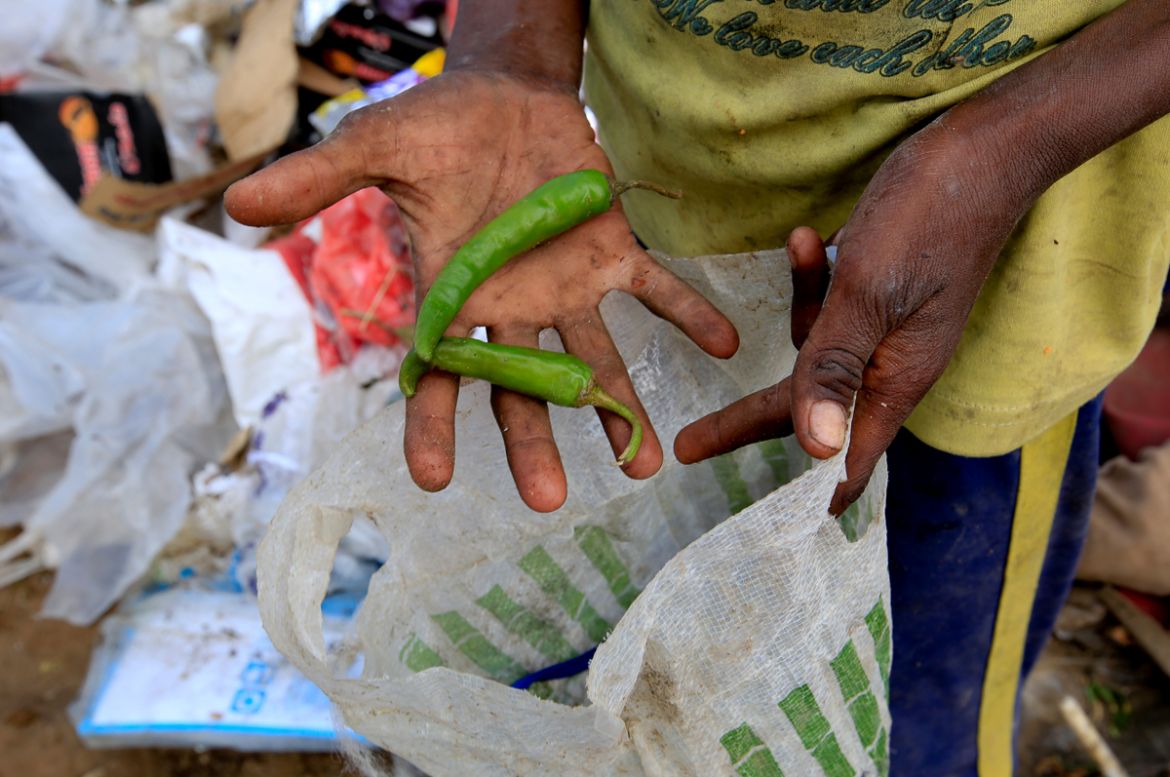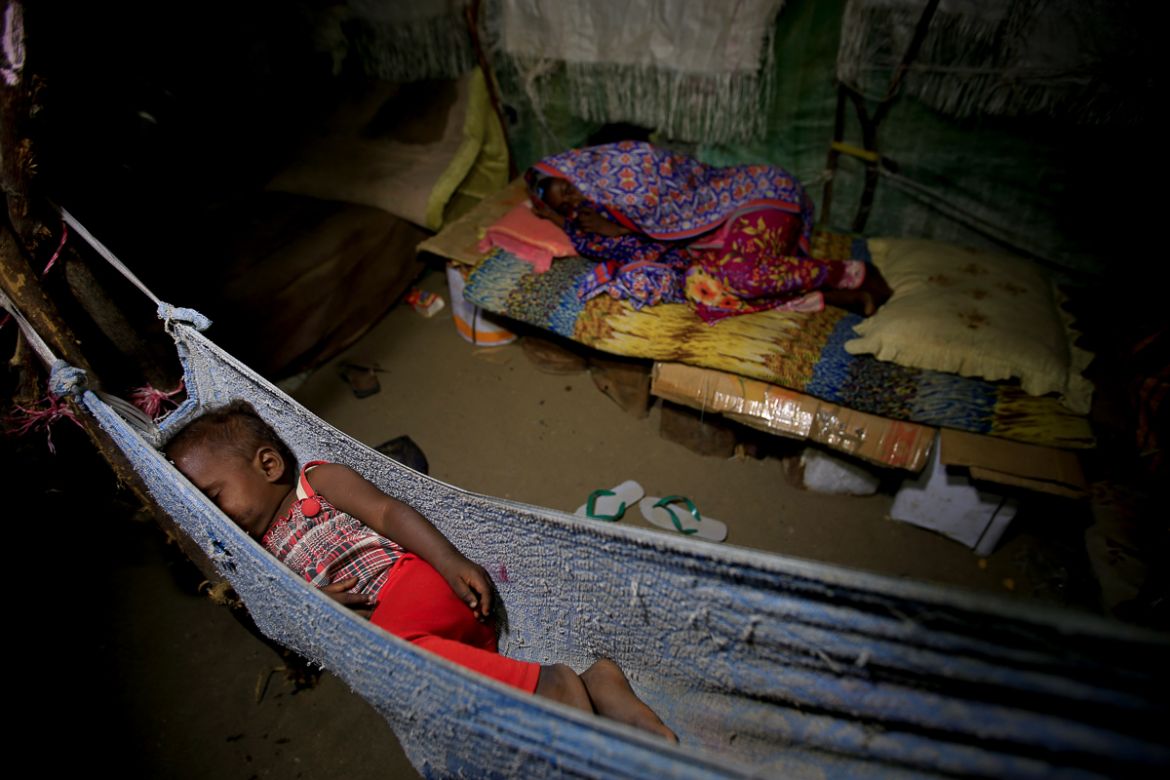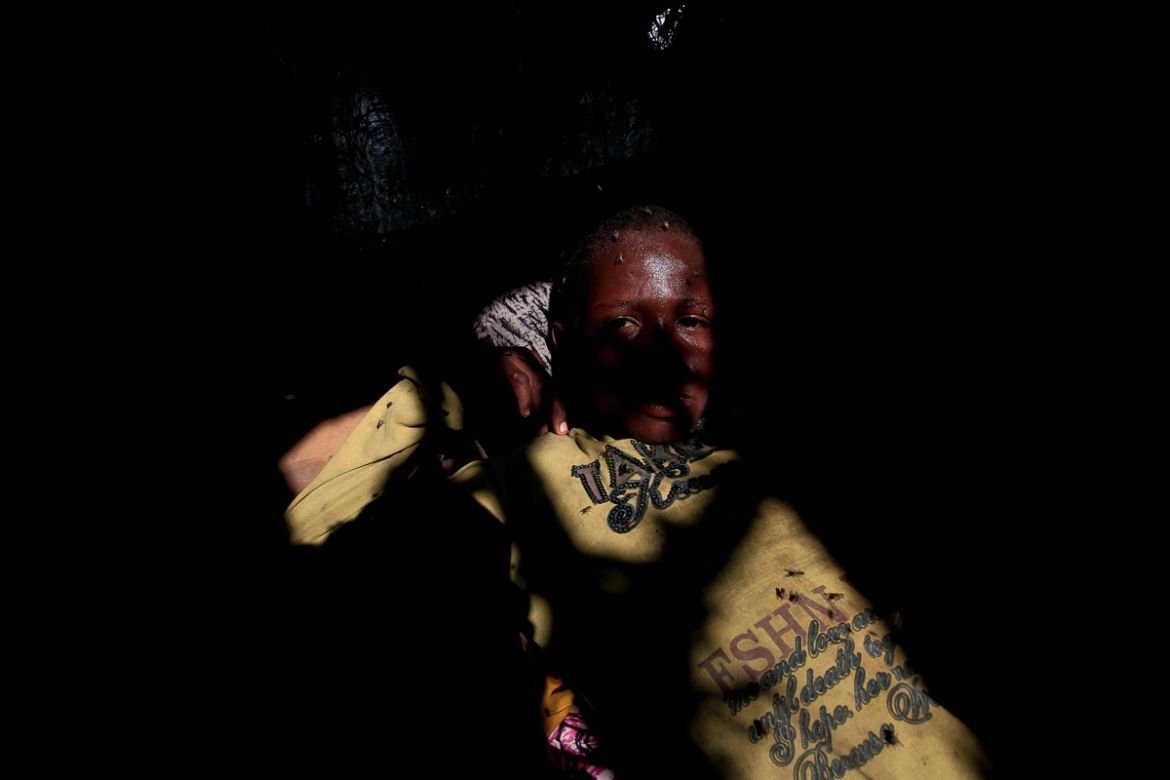In Pictures
Surviving Yemen’s war in a rubbish dump
A garbage heap has become a source of food for hundreds of Yemenis as the three-year war threatens millions with famine.

After relentless Saudi-led air raids near their home in northwest Yemen, the Ruzaiq family packed up their belongings and fled to the relative safety of Hudaida port on the Red Sea.
But with no money or relatives to shelter them, the 18-member family joined a growing number of displaced Yemenis living on or next to the rubbish dump of the Houthi-controlled city.
Despite the health risks, the dump has become a source of food for hundreds of impoverished Yemenis and given young men a chance to earn an income.
“We eat and drink the food that is thrown away,” said Ayoub Mohammed Ruzaiq, 11. “We collect fish, meat, potatoes, onions and flour to make our own food.”
The United Nations estimates more than two million people have been displaced by the war, which intensified in 2015 when an Arab coalition led by Saudi Arabia intervened to try to restore President Abd-Rabbu Mansour Hadi to power after Houthi rebels forced him into exile.
The war has killed more than 10,000 people, crippled the economy, caused a cholera epidemic that has killed nearly 2,000 people and pushed the country to the verge of famine.
The Saudi-led coalition denies accusations that it targets civilians or civilian property in its military operations. Riyadh sees the Houthis as a proxy militia linked to regional rival Iran.
Both Iran and the Houthis deny any military cooperation.
Family patriarch Mohammed Ruzaiq, 67, said Yemenis were not asking for any aid from outside, just a goodwill effort to end the war.
“All we want is for them to stop this war and this calamity and God Almighty will provide for us,” he said.






